|
As the Senate chair of the Health Coverage, Insurance, and Financial Services Committee, I work to make health insurance accessible and affordable. During my time, I learned that first responders, including firefighters and police officers, experience chronic stress while responding to crises and emergencies. Moreover, these brave individuals face not only physical challenges but also significant mental and emotional burdens as they navigate the aftermath of emergencies...
0 Comments
"What's going on in other states, and laws that they've passed, and seeing in particular the common themes of those laws," Sen. Donna Bailey, chair of the task force, said.
SACO – State Senator Donna Bailey (D-Saco) has launched her campaign for re-election to her Senate District 31 seat.
Senate District 31 includes the communities of Saco, Old Orchard Beach, and Buxton, after the recent redistricting effort jettisoned Hollis and Limington from the district. “I’m taking action to address the ongoing housing crisis by ensuring more Maine seniors keep more money in their pockets for food, medication and travel,” said Bailey. “The new law I helped pass, revives the Senior Property Tax Deferral Program to reduce the burden property taxes have for those most vulnerable in our community.” Currently, Bailey serves as a member of the Appropriations & Financial Affairs Committee, the budget-writing committee in the legislature, and as a member of the Government Oversight Committee. “I’m in the best possible position to deliver real results for our area as I’ve worked with my colleagues and Governor Mills on passing budgets that reflect our core values as Mainers,” says Bailey. “We’ve finally funded the state’s share of education at the voter-approved 55% level, funded free school meals for all public school students, and signed off on a plan to fully restore revenue sharing by 2023.” Outside the Legislature, Bailey is a practicing attorney specializing in real estate, family, and probate law. Previously, Bailey served on the Saco Planning Board, Zoning Board of Appeals, and was elected York County Probate Court Judge. SACO – EMILY’s List, the nation’s largest resource for women in politics, has endorsed Representative Donna Bailey for Senate in District 31 which includes Saco, Old Orchard Beach, Hollis, Limington, and Buxton.
“As a lawyer with extensive involvement in her local community, Donna is in touch with the needs of her district,” said Denise Feriozzi, EMILY’s List political director. “She fought for her neighbors every day in the Maine State House, and we are confident that she will continue her passionate, independent leadership in the Senate.” EMILY’s List has more than three million members in Maine and across the country. “I’m honored to receive the endorsement from EMILY’s List,” says Donna Bailey. “Electing more women to the legislature means greater representation to make a difference in people’s lives.” For more information about Donna Bailey, you can visit www.dbformaine.com. "Donna Bailey’s devotion to her community, as seen in her volunteering every week for the 13 weeks of the Saco Parks & Rec Food program, is a civics lesson for all. Donna continues to work for the community in Augusta on taxation issues, legal procedures, and of issues near and dear to Saco residents such as the Saco Shoreline and Camp Ellis Jetty. Her advocacy for Saco has been exemplary! Thank you Representative Bailey for your diligent work on behalf of our community and you have my support for State Senator!" – Bill Doyle
Last March, as many of us in Maine were looking forward to gearing up for a break in the weather and preparing to enjoy our eventual wonderful summer, the coronavirus pandemic hit us like the wave of a tsunami. Overnight, schools across Maine closed, businesses across the state closed, and many were left frightened and uncertain as to how to proceed and how these closures would impact our communities. State government shifted much of its operations to remote work and the Legislature abruptly adjourned, as all of us in the Legislative Branch agreed that it was the safest thing to do as we tried to navigate these uncertainties.
Representative Donna Bailey helped me file legislation to make state Veterans benefits consistent throughout Maine law. Clearing this up, will ensure Veterans get the full range of benefits they are owed without worrying that state law doesn’t align with Federal law.
As someone who served two tours of duty in Iraq, this effort means a lot to me and Veterans in our community. In addition, Donna voted for successful legislation that allocated funding for transitional housing to homeless Veterans. She also supported efforts to ensure Veterans can access VA medical care by mandating leave for employees for doctor’s appointments. Donna Bailey has my full support in her bid for State Senate and I know she will continue to champion our Vets. Marshall Archer BUXTON (WGME) -- A pastor is pushing for change after a methamphetamine lab was discovered inside a Methodist church.
The I-Team got an exclusive look inside at the damage. The Buxton United Methodist Church is unusually quiet these days because its congregation is displaced by a disturbing discovery. "Very shocking," Pastor Lynn Briggs said. Briggs said a local man turned their sacred space into a meth lab. "Certainly nothing you would expect to happen in a house of worship in a little, country town," Briggs said. Matthew Anderson is charged with unlawful operation of a methamphetamine laboratory, a class B felony. Police say they found meth-making materials in a children's playroom. "Everything had to go," Briggs said. Four rooms in all had to be gutted, right down to the studs, because of the contamination left behind. According to the National Drug Intelligence Center, exposure can cause nausea, headaches, confusion and breathing problems. "This is very, very dangerous stuff," Briggs said. "I never knew the extent." Briggs said the church hired professional cleaners, who found the HVAC system was contaminated, spreading it throughout most of the building. "All of our hymnals, all of our Bibles, choir music, robes, anything like that. That all had to go," Briggs said. She said they went above and beyond in the name of safety, but didn't have to do any of it. "None of this was required. None of it. No," Briggs said. The Maine Drug Enforcement Agency removes the manufacturing materials, then posts a notice, warning there could still be hazardous waste left behind. From there, it's up to the property owner. "Just because the law says you don't have to do it, doesn't mean that it's right," Briggs said. An I-Team investigation in 2017 revealed that while some states require testing and decontamination, Maine does not. At the time, a meth contaminated property could also be sold without telling the buyer. About half of states have clean-up standards, including New Hampshire. Most set a legal limit for meth, so a property will be declared "decontaminated" when it's cleaned, and tests come back below that level. Lawmakers expressed concern in 2017, but didn't take any action until recently. "It scares the devil out of me," Rep. Donna Bailey, D-Saco, said. Bailey chairs the Judiciary Committee, which approved a bill last spring to require disclosure in a real estate sale. A Sanford lawmaker sponsored the legislation because of a meth lab in her own neighborhood. That bill was signed into law. "Perhaps they wiped down the counter, but how do you know those chemicals aren't left behind?" Bailey said. "And they're so toxic, especially to children." Briggs wants lawmakers to go even further. "After seeing this and going through this process, I realize the standard we currently have for clean-up ... we don't have one," Briggs said. "It's nonexistent and this is a hazardous material." I-Team Reporter Marissa Bodnar asked Bailey if Maine should require some form of clean-up. "Yes," Bailey said. Lawmakers are currently considering a bill, carried over from last session, that would require owners of rental properties to not only tell their tenants if a meth lab is discovered, but also perform testing and decontamination. Bailey said it's a complicated issue. "Not every lab uses the same chemicals, so how do you come up with standards for something that's far from standard?" Bailey said. Briggs would like to see their hardship lead to change for the better. In the meantime, the congregation continues to worship somewhere else. "Folks are missing their home," Briggs said. "There's no place like home." Bailey said her committee has asked the Maine Department of Environmental Protection to look into establishing clean up standards. Bailey said they expect to hear back soon, but will then have to grapple with some of the policy decisions, like who would be required to foot the bill for, what can be, a very expensive process. AUGUSTA, Maine — Maine’s Native American tribes say they lost control over their own lands 40 years ago, and are hoping the Legislature will return at least some of the control they once had.
The tribes and the Legislature’s Judiciary Committee have been talking for more than a year about changes to the 40-year-old Maine Indian Land Claims Act. That law, passed by Congress and signed by President Jimmy Carter, ended the legal claim by the tribes to two-thirds of the land in Maine. The tribes were given money and allowed to buy hundreds of thousands of acres of land. But that same agreement restricted the amount of control the tribes could have over what happened on their land, which has been a source of resentment against state government ever since. The four tribes—Penobscot, Passamaquoddies, Malisetts and Mic Macs—are now counting on lawmakers and the Governor to return much of the lost sovereignty, and Sen. Mike Carpenter, co-chair of the Judiciary Committee, says the time has come to do it. “They need to regain their sovereignty, and I can’t put it more succinctly than that,” Carpenter said Wednesday. “The claims act of 1980 severely restricted-they would say stripped them, I disagree,-severely restricted their ability to govern their own affairs and we’re trying to rework that if you will.” For most of the past year, a task force and members of the Judiciary Committee have worked on a bill to make those changes. It's complex because it involves identifying laws and practices that have existed for 40 years, and determining how those can and should be changed. The committee was closing in on an agreement in March when the Legislature abruptly adjourned because of the COVID-19 pandemic. Now the committee is trying to finish the bill and get it to the full Legislature within a week, in the hope there will be a special session and a vote. The discussions cover everything from enforcement of hunting and fishing rules to some criminal matters to property taxes among many issues. They also involve decisions about what laws should be handled only by tribal enforcement and courts, what ones should remain solely in state jurisdiction, and what might be shared. “A tricky balance,” said Carpenter, who had to enforce the Land Claims Act when he was Maine Attorney General in the 1980s. And while the changes would be significant, committee co-chair Rep. Donna Bailey (D-Saco) said Maine should be able to make them. “I would look to the other 49 states, which have federally recognized Indian tribes and they operate under that system and have been able to do just fine. It does require more consultation and cooperation between the states and the tribes, but they all make it work and we can make it work in Maine as well.” Tribal leaders say the issue is immensely important and gets to the foundation of who they are, and the ability to control their own destiny. “As resources have grown the needs of the tribe have grown,” said Chief Kirk Francis of the Penobscot Nation, “and yet we’ve been handcuffed by this document four decades old and (we are) nowhere near the place we were then.” Chief Francis said everything from expanding tribal land to economic development is held back by lack of sovereignty. Darrell Newell, Vice-Chief of the Passamaqoddies at Indian Township, said he and many others feel it personally. “We’re just striving to restore our sacred, inherent sovereign rights to make decisions for ourselves, to better our people for future generations.” AUGUSTA (WGME) -- A bill that gives victims of animal abuse a voice had a public hearing Wednesday morning at the State House in Augusta.
LD 1442 is called "An Act to Provide for Court Appointed Advocates for Justice in Animal Cruelty Cases." The bill is also known as "Franky's Law." It was named after a pug mix from Winter Harbor who was kidnapped from his home last year. He was tortured, killed, wrapped in garbage bags and dumped into the bay. The dog’s body later washed up on a beach in front of the Hancock County District Attorney's home. Two men were arrested and charged. Franky's Law would allow courts to appoint law students or volunteer lawyers to work for free for animal abuse victims. The bill's sponsor, Representative Donna Bailey, of Saco, says the bill has received a positive response from the public. "The advocates will be able to help the court and help the prosecutors to speak for the animals, if you will,” Bailey said. Those against it say the wording of the bill is too vague. “There are already things that are in process that we don't feel like this is going to be a benefit to animal cruelty cases. We understand the good intentions behind it, but we just don't feel the language is appropriate,” Director of Animal Welfare for the Department of Agriculture Conservation of Forestry Liam Hughes said. Franky's Law is modeled after Desmond's Law, a similar bill that passed in Connecticut in 2016. A work session followed Wednesday’s public hearing. |
BlogLatest News Archives
February 2024
Categories |


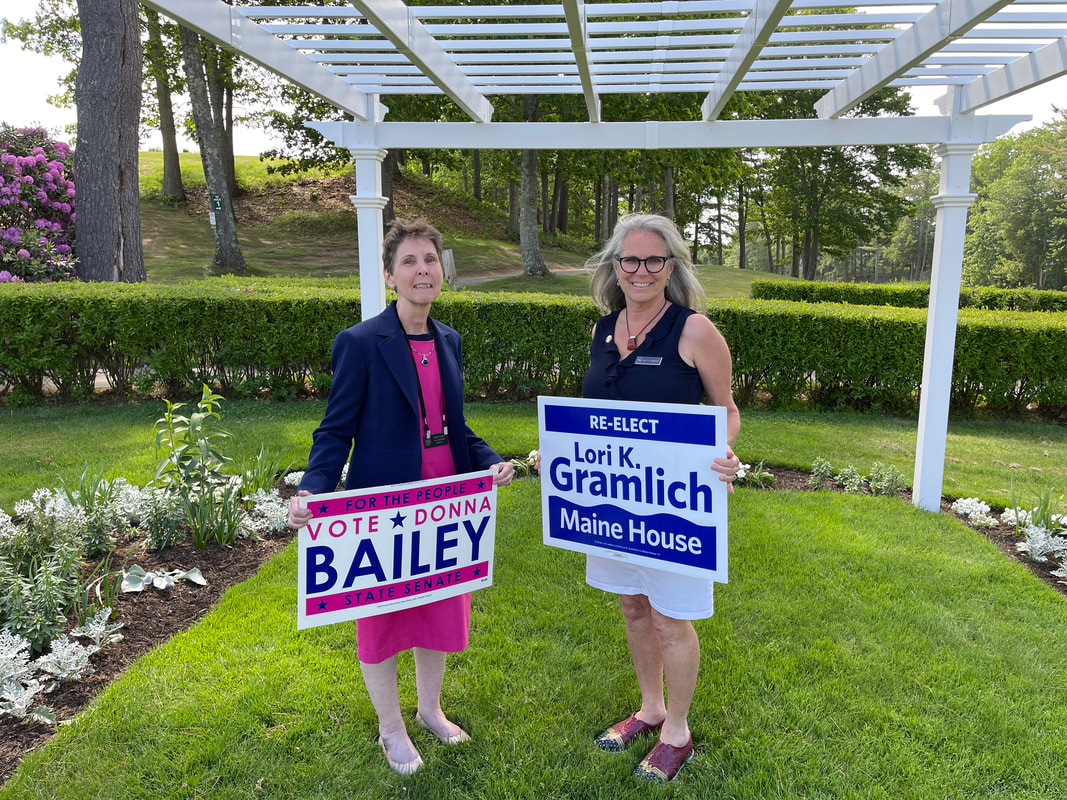
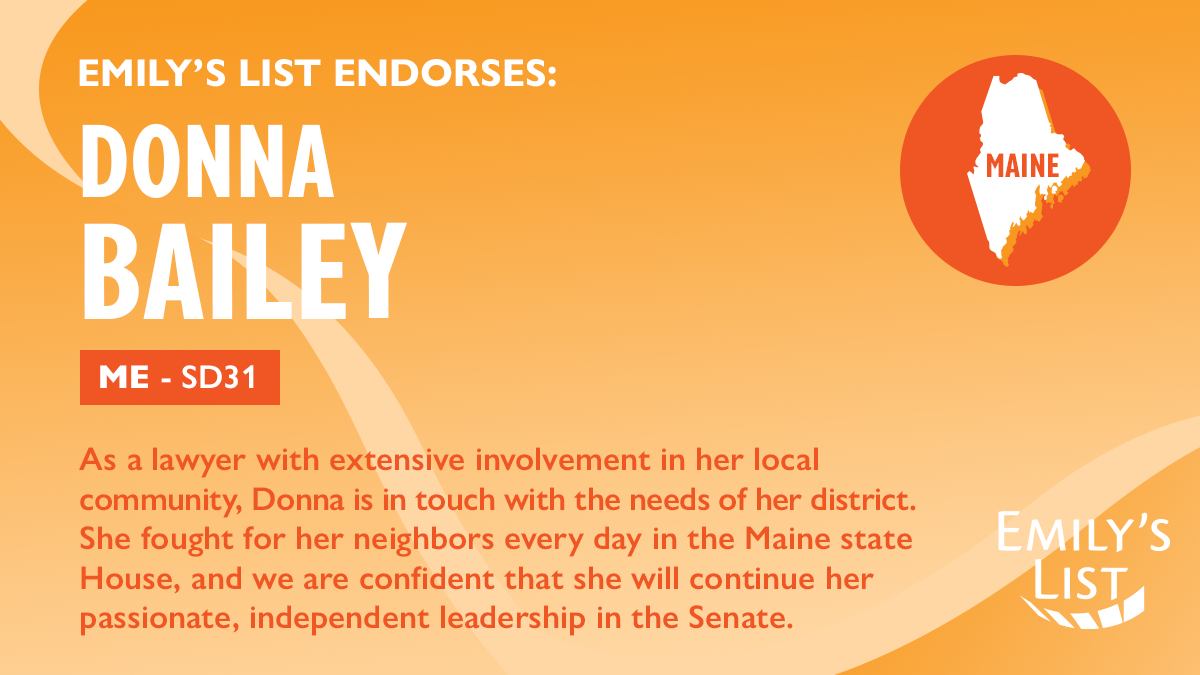
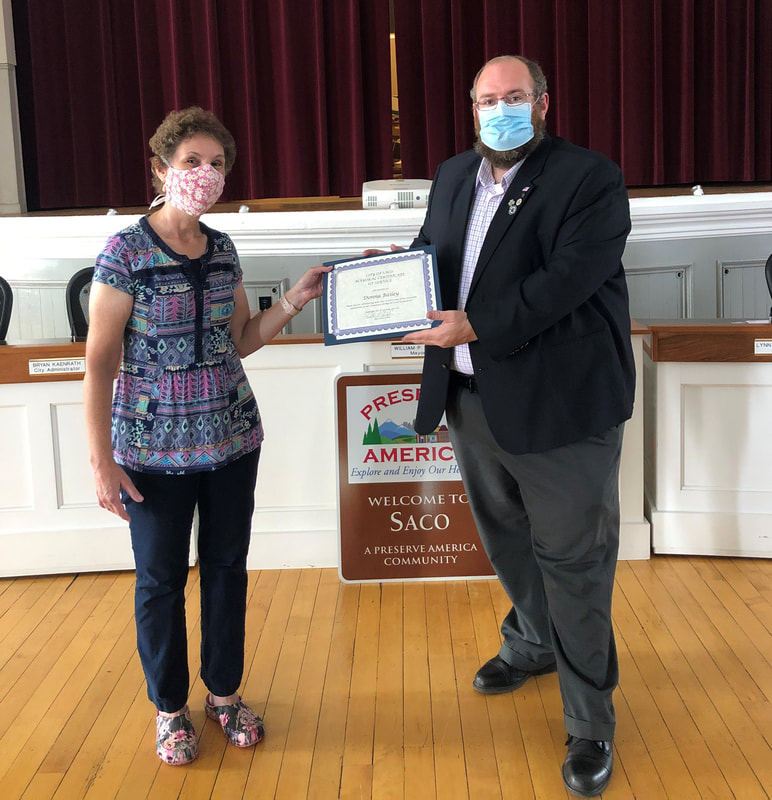
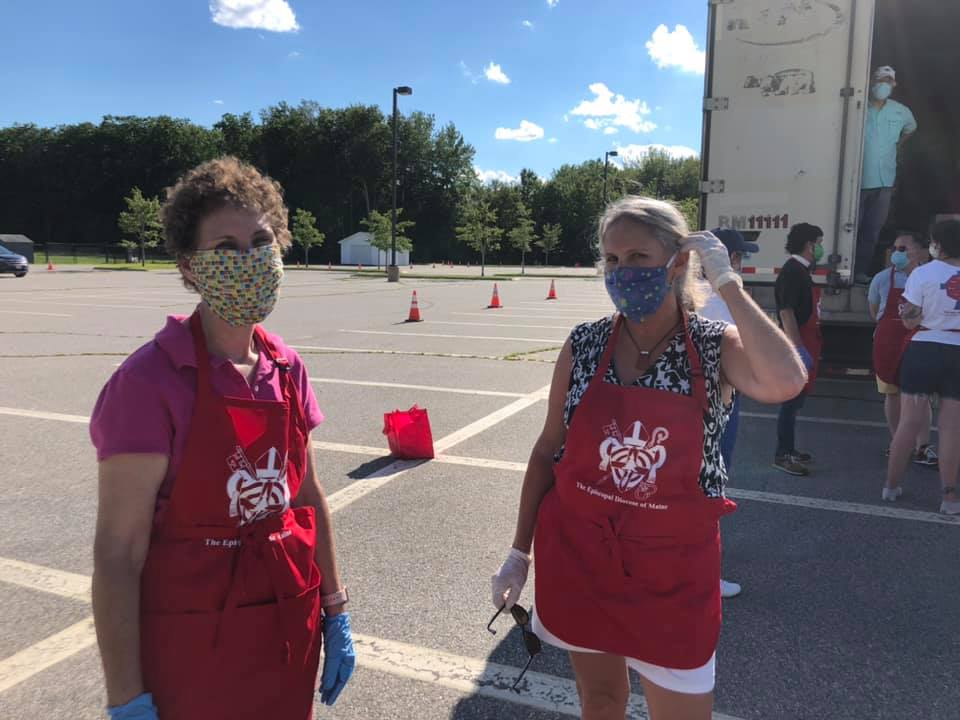

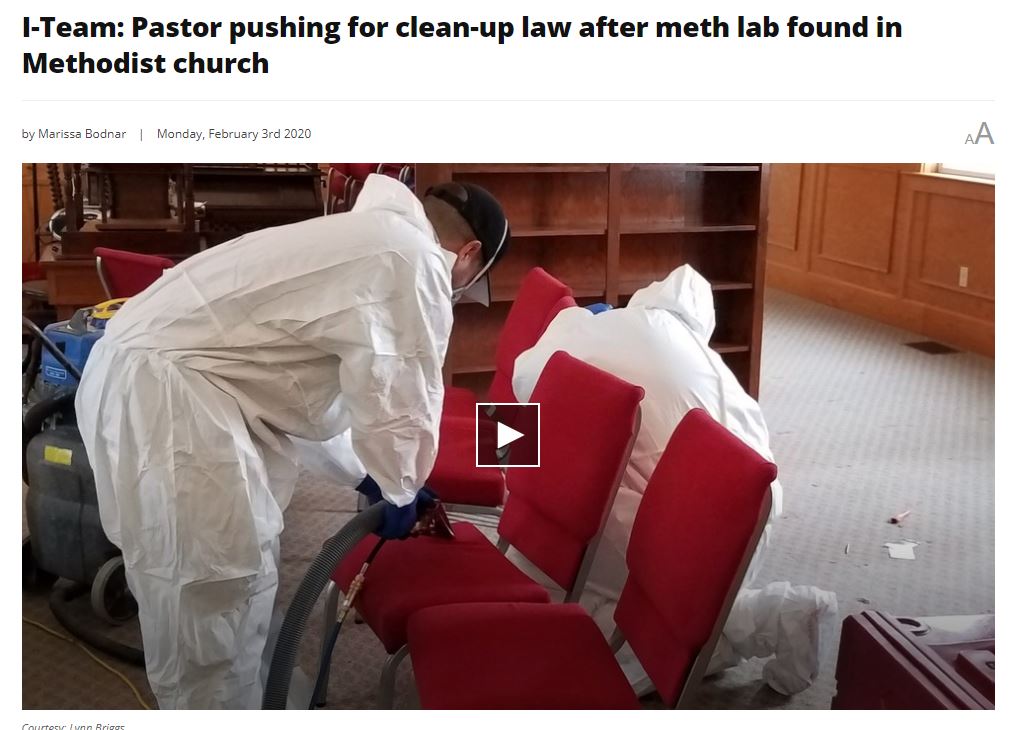

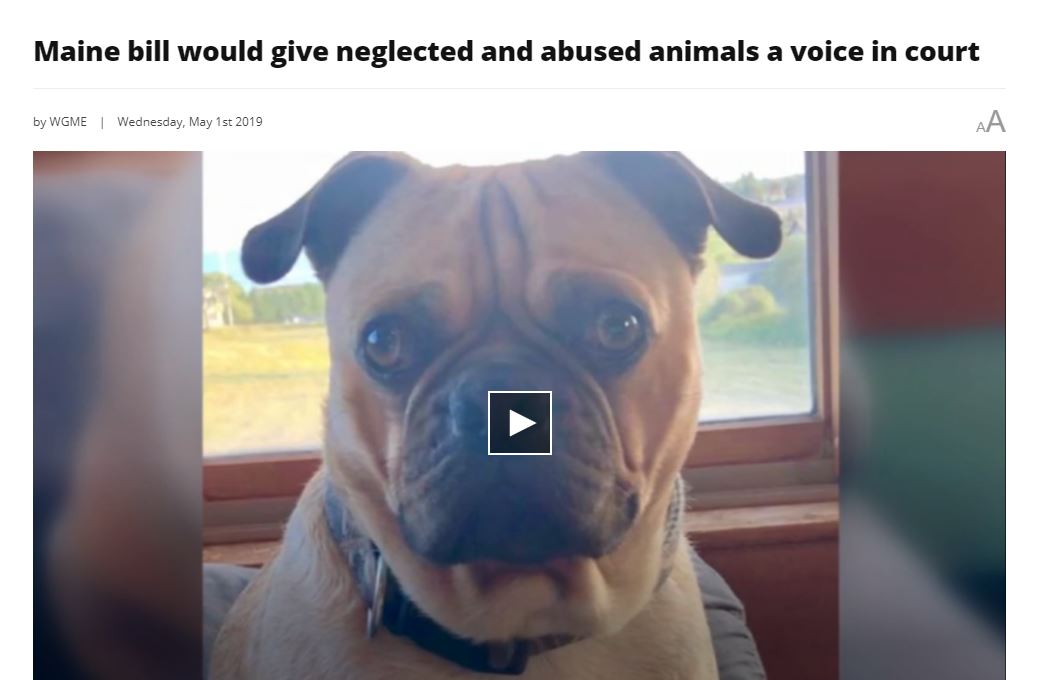
 RSS Feed
RSS Feed
